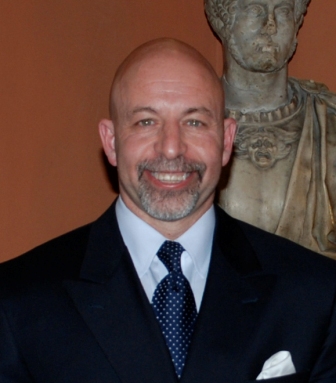 Prof. James Giordano, PhD, is Vice President for Academic Programs and Director of the Center for Neurotechnology Studies at the Potomac Institute for Policy Studies. In the latest post on his blog Neurosecurity, he writes about the ongoing debate over the application of neuroscience and neurotechnology in national security, intelligence and defense (NSID). Prof. Giordano notes that some in the neuroscientific community have called for their colleagues to disavow any involvement in NSID. But he argues that while ethical and moral probity must be maintained, avoidance is not the answer. Prof. Giordano writes, "Thus, I call for some – but certainly not all – neuroscientists and neuroethicists to be actively involved in the discussion and debate, as informed, experienced experts at those tables where guidelines and policies are made, to work proactively to provide lenses and voices to report what neuroscience can and cannot do, and to be participatory in the formulation of directives that shape and govern the ways that neuroS/T should – and should not – be utilized." Click here to read the post in full.
Prof. James Giordano, PhD, is Vice President for Academic Programs and Director of the Center for Neurotechnology Studies at the Potomac Institute for Policy Studies. In the latest post on his blog Neurosecurity, he writes about the ongoing debate over the application of neuroscience and neurotechnology in national security, intelligence and defense (NSID). Prof. Giordano notes that some in the neuroscientific community have called for their colleagues to disavow any involvement in NSID. But he argues that while ethical and moral probity must be maintained, avoidance is not the answer. Prof. Giordano writes, "Thus, I call for some – but certainly not all – neuroscientists and neuroethicists to be actively involved in the discussion and debate, as informed, experienced experts at those tables where guidelines and policies are made, to work proactively to provide lenses and voices to report what neuroscience can and cannot do, and to be participatory in the formulation of directives that shape and govern the ways that neuroS/T should – and should not – be utilized." Click here to read the post in full.
Past Events
ICTS Seminar - Terrorism and the Media: Dilemmas for Government, Journalists, and the Public
Potomac Institute for Policy Studies
International Center for Terrorism Studies
April 20, 2017
The role of the press in reporting on terrorism has been under public debate for decades. Many issues have been considered, including whether the media encourages terrorism and whether governments shoul...
International Cooperation in Combating Terrorism
The current deteriorating Middle East security architecture gravely challenges the international community more than ever before. The lingering crisis of national identities coupled with escalating extremism and violence is resulting in unprecedented social, economic, and strategic costs. These regi...
ICTS Seminar-Latin America’s Security Outlook: Challenges and Opportunities in the Post-Castro Era
Potomac Institute for Policy Studies
December 16, 2016
Latin America’s multiple security challenges include organized crime, terrorism, migration, economic development, and threats to democratic governance.
Experts with governmental, academic, and professional experience meet to discuss current a...
9/12 "From Data to Knowledge in Neuroscience: Building Toward Individualized Medicine"
The current wealth of data in neuroscience has the potential to lead to groundbreaking neuroscientific discoveries and revolutionize clinical treatments for mental health and neurological disorders. Combining neuroscience data with information in other data-rich fields, such as genomics, will make p...






